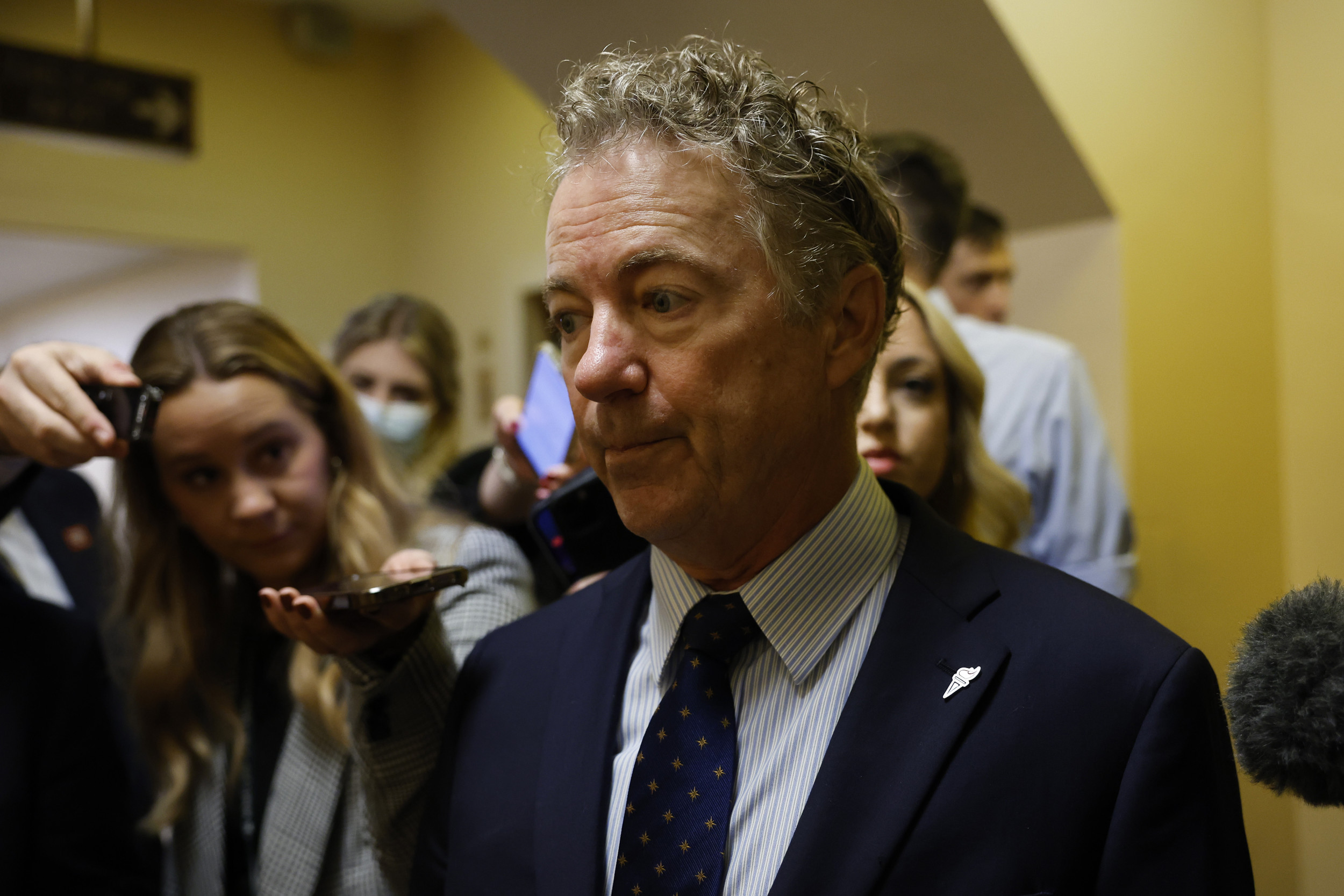Senator Rand Paul has faced criticism for previously trying to block funding for Israel’s Iron Dome defense system following Hamas’ attack against Israel over the weekend.
Hamas fired rockets at Israel while dozens of fighters infiltrated the border by air, land and sea in areas near the Gaza Strip on Saturday morning. Israeli Prime Minister Benjamin Netanyahu said during a televised address on Saturday that Israel was now at war, launching its own attacks against Hamas in Gaza.
As of Monday afternoon, 900 people have been killed in Israel and 493 killed in Gaza, according to the Associated Press, with thousands injured on both sides.
United States leaders pledged support for Israel. Paul, a Republican from Kentucky, was one of many lawmakers to share a statement of support.
“My thoughts and prayers are with the people of Israel. These horrific and violent acts of terrorism should be universally condemned,” Paul wrote on X, formerly Twitter.
Critics, however, quickly noted that Paul has previously sought to block funding for Israel’s Iron Dome defense system. The Iron Dome is Israel’s missile defense system that is capable of defending the country against short-range rockets. The U.S., which has provided billions of dollars to Israel, has also provided funding for the defense system.
Paul in 2021 raised concerns about legislation that would allocate $1 billion to Israel for the Iron Dome which was supported by both Democrats and Republicans. He blocked the Senate from casting a quick vote on the funding, instead suggesting the Iron Dome funding should have come from an aid package already approved for Afghanistan, Politico reported at the time.
He ultimately blocked the funding four times, but it later passed in 2022 after months of delays.
Paul has never opposed funding the Iron Dome and has maintained support for Israel. Still, his critics drew attention to his blocking the funding following his statement over the weekend.
Newsweek reached out to Senator Paul’s office via email for comment.
“You literally tried your best to withhold aid for the Iron Dome,” wrote attorney Bradley P. Moss on X, formerly Twitter.
“Rand Paul may just want to sit this one out. Paul blocked funding for Israel’s Iron Dome anti-missile defensive shield for several months. (It was eventually passed in an omnibus bill in March of 2022),” Georgetown University Professor Don Moynihan posted on X.
While some social media users were critical of his record on Iron Dome funding, others defended him, arguing that his concerns about funding for the defense system can coexist with his support for Israel.
Paul, who has embraced a largely libertarian stance on foreign policy, has joined most other U.S. politicians in being a strong supporter of Israel. He sought to block the funding not out of opposition to Iron Dome funding but due to concerns about the price, he said at the time.
“Both of these sentiments can co exist,” posted X user Jessica Lubien.
“It’s not the USA’s business to provide “aid” to other Countries,” wrote @mail_american.



The situation in Ukraine versus the situation in Israel is about as different from each other as a brick is to Jupiter.
To pretend otherwise is intellectually dishonest.
I never said they were the same. I said the question applied to both countries.
No. They don’t. It’s like asking why you didn’t give your goldfish a bicycle when you did exactly that for your 10-year-old daughter.
And frankly, it’s hard to believe that people who would ask this type of question are doing so in good faith.
Why doesn’t “why is it controversial to expect a country to pay for their own defense?” apply to Ukraine? Is it not a country? Does the U.S. not give them military aid? I think we should, but I’d love to know why that question does not apply to both countries.